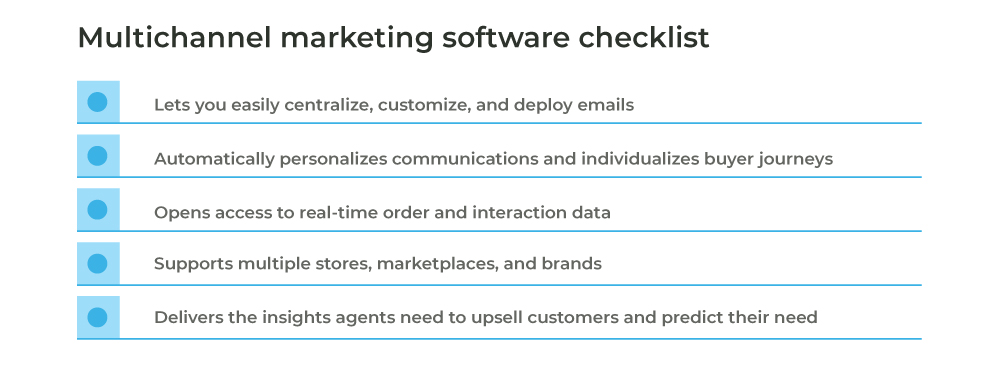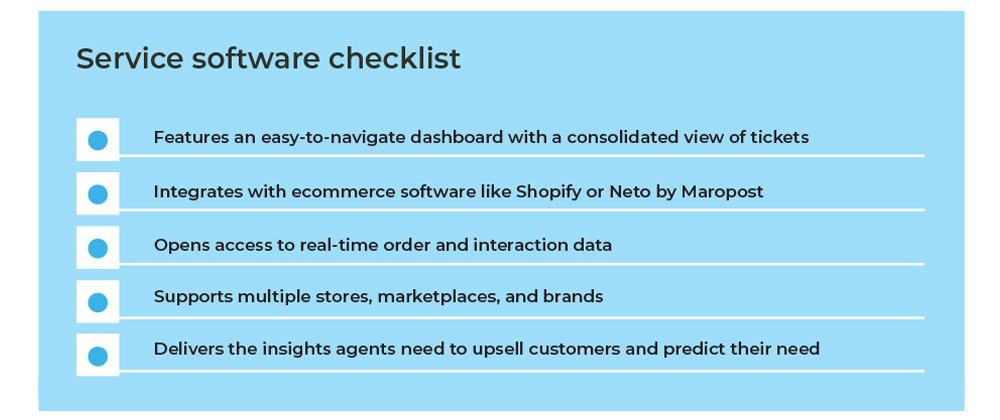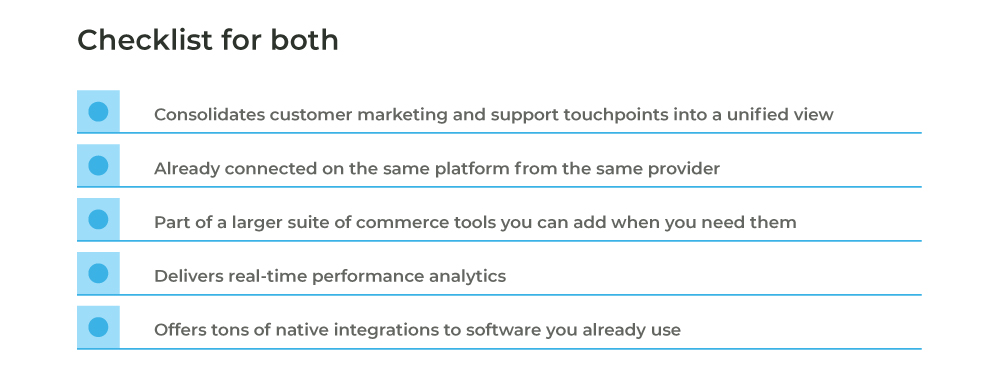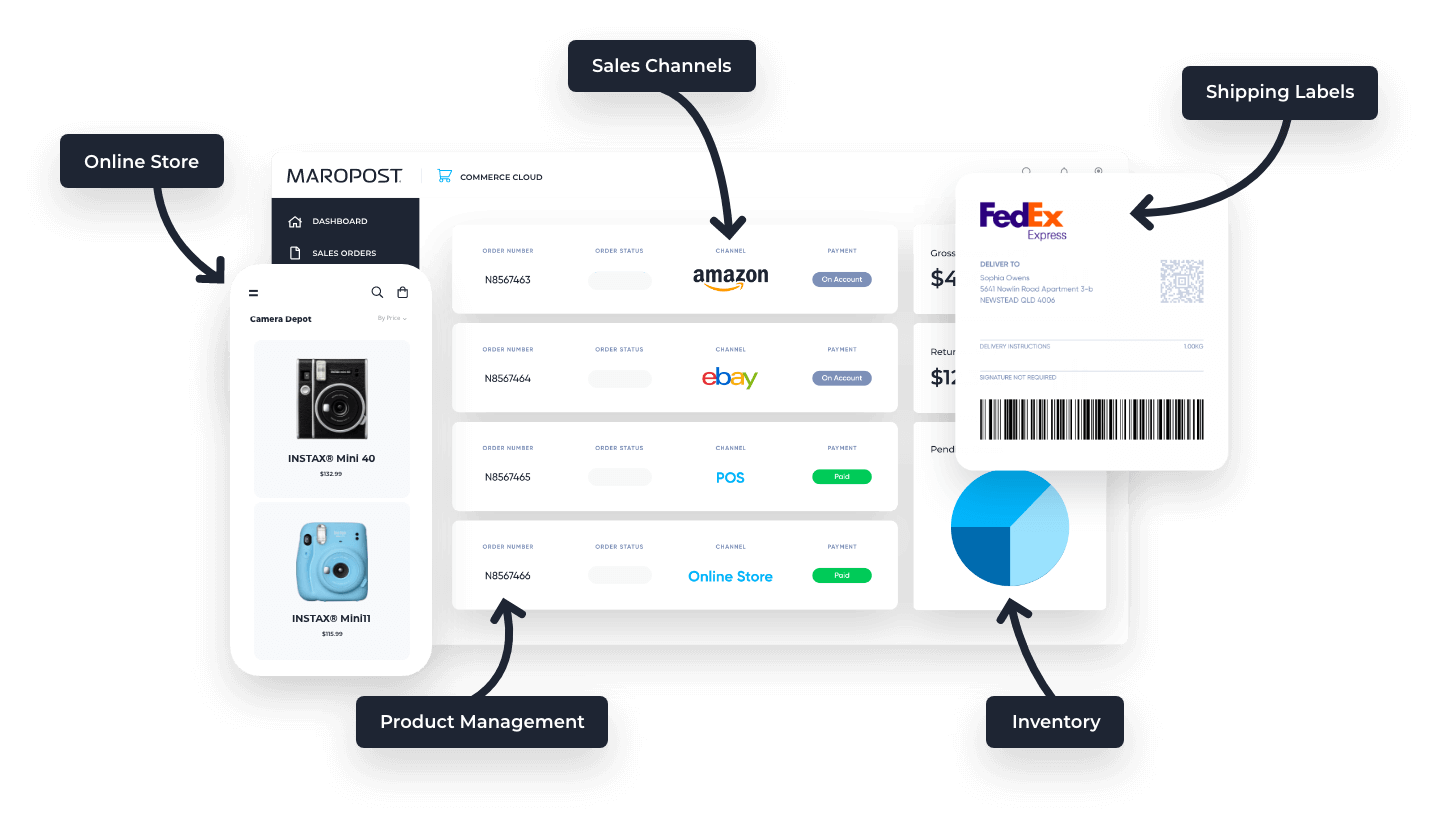Whether you’re a big-box retailer or an up-and-coming etailer, customers now expect you to make service fast, efficient, and personalized, mirroring the convenience of online shopping. And failing to meet their expectations can be costly.
A recent PWC survey found that 25% stopped spending with businesses because of bad experiences. Consumers want more relevant marketing, too: According to McKinsey, 76% of shoppers said they’re more likely to buy from brands that personalize content.
While 80% of customers are willing to trade personal data for better service, access to deeper demographics only solves part of the problem.
For many fast-growing businesses, siloed marketing and support data prevent true personalization. Separate systems mean no one has access to a buyer’s entire journey. This disconnect makes it harder for both teams to solve problems — and easier for customers to get frustrated.
Now, imagine making every support and marketing interaction and touchpoint a customer has with your business visible to everyone who serves them. With enterprise-grade technology, you can make customer support integration and personalized customer experiences accessible to businesses of all sizes.
Before we detail how to integrate support and marketing data, let’s reveal three reasons why you should.
Three examples: The power of unified customer data

Unified customer profiles centralize your business’s marketing, sales, and support data. They give support and marketing teams a unified view of each customer, visibility into each step in their journey, and insights into every interaction.
By providing a holistic understanding of each customer, unified customer profiles help agents and marketers efficiently and effectively realize:
1. Tailored customer experiences
Businesses can better understand customer preferences, behaviors, and needs by integrating insights from marketing campaigns and customer support interactions. This combination enables more targeted and relevant marketing strategies and delivers the insights and context agents need to make the most of every interaction.
2. Cross-functional collaboration
Shared marketing and support data fosters collaboration between once-siloed teams across the entire customer journey, from initial engagement to ongoing support. For example, insights from support interactions can inform more effective marketing campaigns, while marketing data can help support teams anticipate customer needs.
3. Proactive problem solving
Both service agents and marketers can use unified customer profiles to predict and prevent problems. Marketing trends can help identify customer behaviors that suggest dissatisfaction, so service agents can proactively offer solutions, improving customer satisfaction and reducing the number of support tickets.
Sound good? Here’s how to get started.
Checklist: Unified customer data software
Once only available to big brands, the technology required to collect, connect, and centralize customer data is now available to small marketing and support teams at emerging businesses. Look for platforms that integrate multichannel marketing software — a step up from basic email blast tools — with service software.



Of course, you don’t have to have software in place before marketers and service agents start sharing insights and inspiration.
Don’t wait to collaborate

While you’re doing your due diligence, encourage both teams to start working more closely together. Here are some suggestions:
- Personas and journey maps: Personas and journey maps are perfect projects for both teams. Marketing can share research for support to validate and improve.
- Customer pain points and objections: What are support agents learning from customers? Marketing can use what they learn to more precisely target campaigns.
- Customer loyalty programs: Support can reveal what customers like — and dislike — about what you sell, and marketing can capitalize on it.
- Case studies and success stories: Marketing can work with support to develop compelling testimonials based on tangible, real-world results.
- Educational content: Support knows what customers need. Marketing can make it approachable and engaging.
The sooner marketing and support start sharing information, the better — that way, they’ll be ready to make the most of your software investment.
Personalized customer experiences, the easy way
Maropost’s suite of commerce solutions gives small teams superpowers. By offering integrated multichannel marketing and service software on the same platform, Maropost makes personalized customer experiences easily achievable.
Maropost is sophisticated but easy to use. Enterprise-grade, but just right for you. And together, our marketing, merchandising, and operations tools level the playing field and unlock your businesses’ full potential. Ready to get started?
Request a demoNeed to chat about your mobile marketing strategy?
More than 10,000 marketers use Maropost to engage with their prospects and customers through emails, SMS, social media and more. We’re here to help you grow your business!
Chat Now

